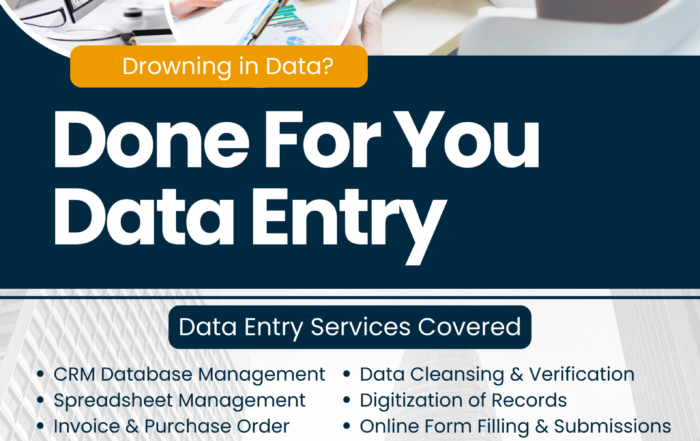What Are Types of Integration in Salesforce?[Methods by Salesforce Consultant]

What Is CRM?
Customer relationship management (CRM) is the one-stop solution for companies to manage their customers. You can acquire new leads, track their buying journey, identify bottlenecks, offer personalized recommendations, send customized promotions, etc. In short, your CRM technology could be your one-point solution for all your interactions with your customers and leads.
How Popular Are CRM Tools?
According to research by DemandSage, over 91 percent of businesses with more than 11 employees use a CRM tool. Launched in the 1990s, CRM Solutions grew popular as a technology solution for customer engagement. As businesses moved online and customers shopped from across the globe, an omnichannel experience became mandatory for brands. Salesforce, in their study, found that 70 percent of customers expect a seamless experience across all channels of interaction with the business. CRM solutions help companies deliver this without breaking the bank.
Why Does My Business Need A CRM Solution?
CRM solutions offer a treasure trove of benefits to businesses. Nucleus Research found that, on average, CRM solutions get you an ROI of 8.71 dollars for every dollar spent. Besides that, it also:
- Promotes Collaboration: Sales representatives, marketing personnel, and customer service can all be on the same page when it comes to customer interactions. This, in turn, promises your customers a seamless experience.
- Data-Driven Decisions: CRMs act as a centralized hub for customer data. You can make data-driven decisions to optimize your marketing and sales strategies.
- Increase Customer Satisfaction: Using customer data, you can understand their buying behavior, challenges, and purchase history to create personalized offers and messages.
- Increased Sales: A better understanding of customer behavior improves conversion rates and thereby increases sales.
How To Choose The Best CRM Solution?
A Customer Relationship Management (CRM) tool is a core part of any business today. It helps you optimize your business operations and increase your sales, and it also enhances customer experience. It thereby builds customer loyalty, which is key to the success of any business establishment. There are many CRM solutions providers, but you need to pick what is best for your business and how you can do it.
Understand Your Business Needs: No two businesses are the same, and no two CRM needs will be the same. Understanding your needs will help you set clear expectations from the CRM tool.
Have A Budget: CRM is an investment you make for your business. While it promises profits and an increase in ROI, you cannot spend a fortune on it. Have a clear budget and find providers who match your requirements within your budget.
Talk to Your Peers: Network with the other players in your industry to understand their CRM tool, their challenges, and the factors that helped them make the decision. Compare this with your needs and budget before making a decision.
Involve Your Internal Stakeholders in the Decision-Making: While this is your business and you are the one investing, remember that your sales, marketing, and customer support team will be using this tool. So, take their input, suggestions, and expectations before making a decision.
Customization: Choose a provider who can scale with your business. Salesforce CRM is a great choice for both small and large enterprises, as it offers customized solutions.
Why Choose Salesforce CRM?
Salesforce is a pioneer in CRM solutions. It caters to large enterprises and offers a comprehensive and highly customizable CRM platform. Salesforce has a market share of over 23.8 percent in the CRM Space, making it the industry leader.
Businesses can seamlessly integrate Salesforce’s solutions into their business website, social media, marketing platforms, etc. In short, Salesforce helps you create an Omni-channel experience for your customers by integrating all your business platforms in one place.
Why Do You Need Salesforce Integration Solutions?
Until a few years ago, not every business had a website. So, when they invested in the CRM, they directly operated using the CRM solution’s platform. However, things have changed now, and every business has an online presence irrespective of the industry, location, or scale of operations.
Customers are present everywhere and interact with businesses. This means that your CRM Solution needs to help you bring all these interactions and platforms under one roof for a seamless data flow. Salesforce Integration Solutions helps you do this effortlessly. According to a report by Grand View Research, over one-third of the CRM global user base is captured by Salesforce integration solutions.
What Are The Benefits of Salesforce Integration Solutions?
- Improved Efficiency: Integrating various applications and automating data flow reduces redundancy. Thus allowing time for your team to focus on more strategic activities.
- Data Consistency: CRM integration ensures data consistency across all platforms. A unified view of your customers helps stakeholders make informed decisions.
- Scalability and Flexibility: Salesforce integrations allow you to connect with a wide range of applications. This enables you to enhance your system as your business grows and your needs evolve.
What Are the Different Types of Salesforce Integration Solutions?
App-Based Integration:
App-Based Integrations are also known as low-code or no-code installations. This is a very user-friendly way to integrate your existing systems with Salesforce CRM. In other words, App-based Salesforce integration can be done without extensive coding knowledge.
Advantages of App-Based Salesforce Integration:
- Low-Code/No-Code: Designed for simple use, the app lets you configure it through drag-and-drop interfaces or pre-built templates. Thus eliminating the need for coding.
- Faster Implementation: Unlike code-based solutions, app-based solutions are quicker, seamless, and cost-effective.
- Numerous Options: Salesforce AppExchange has numerous pre-built integrations that you can use to connect with your communication apps, marketing tools, project management platforms, e-commerce platforms, etc.
Is the App-Based Salesforce Integration Approach Right for You?
App-Based Salesforce integration or no-code integration is one of the easiest and most cost-effective methods. But is it right for you? Or should you opt for a code-based integration? Read on to find out:
- Technical Expertise: App-based integrations, with their user-friendly interfaces, would be the perfect choice if your team lacks coding skills.
- Budget: App-based integrations are cheaper and more cost-effective than code-based integrations.
- The Complexity of Integration: If you require a lot of customizations in your Salesforce CRM, this might not be the right approach for you. Customization requires in-depth coding, so a code-based approach might be right for you.
Code-Based Integration
As the name suggests, this method of integration uses code to integrate your existing platforms with Salesforce CRM. It is ideal if you want to customize your CRM solution extensively.
Advantages of Code-Based CRM Integration
- Highly Customizable: Code-based integration offers flexibility and control in terms of integration. You can personalize it for complex scenarios, specific needs, and workflows.
- High Functionality: Code-based approach unlocks advanced features and functionalities that are not available on app-based integrations.
- Direct API Access: Developers have full access to the capabilities of both Salesforce and the other application’s APIs. This allows for in-depth customization and better security measures.
Disadvantages of Code-Based CRM Integration
- Technical Expertise: You need developers with knowledge of Salesforce API and programming skills.
- Time and Cost: It is a labor and resource-intensive approach.
- Maintenance Needs: Code-based integrations need ongoing maintenance and updates.
What Are Some Challenges With Salesforce Integrations?
New research suggests that Salesforce helps organizations save around 25% in IT cost savings. Another research found that Salesforce customers see a 36 percent increase in productivity and a 28 percent increase in sales, and are 38 percent better at forecasting business outcomes. So, it is no wonder that everyone is on board the Salesforce CRM bandwagon.
But did you know that you could face several challenges in Salesforce integration if you do not pick the right partner? Read on to learn what those challenges are and how you can find the right partner to make this integration seamless.
Data Challenges:
- Data Security: Data migration during integration could increase data breach risks. It is important to ensure your data is encrypted and secure to prevent breaches or unauthorized access.
- Data Consistency: Data duplication during migration can create inconsistencies and reduce the effectiveness of integrations.
- Data Mapping Complexity: Mapping data fields between Salesforce and other applications can be complex. This is especially true if the data structures differ significantly. Therefore, you will have to plan and test your data to ensure accuracy carefully.
Technical Challenges:
- Choosing the Right Integration Approach: If you pick the wrong integration approach, you might not see the benefits of the CRM tool.
- Integration Maintenance: Integrations need ongoing monitoring and maintenance. This is especially true for code-based integrations, which need to be upgraded as Salesforce or other applications evolve.
- System Compatibility Issues: Integration could be difficult if your existing systems are not compatible with Salesforce.
Business Process Challenges:
- Business Goals: Understand what you wish to achieve using the CRM tool. Having clear business goals is the key to successful integration. Without proper goals, you cannot pick the right tools or measure the integration’s success.
- Change Management: Integrating new tools will impact your workflow and user behavior. To reduce disruption, you should have a proper change management strategy in place. Training your employees on the new tools, gathering feedback, and making changes would be a great way to ensure easy adoption.
- Testing and Validation: Before launching the tool, you should thoroughly test the systems to identify and fix any potential issues.
Why Should You Hire A Salesforce Integration Partner?
There are several compelling reasons to hire a partner for Salesforce integration:
- Expertise: Partners have deep expertise with integration, which helps you save time and money.
- Seamless Integration: A good partner will ensure a smooth and efficient integration.
- Customizable Solutions: Tailoring Salesforce for your business needs can be done better by someone who is proficient with the tool.
- Staying Up to Date: The Salesforce platform and other technologies constantly evolve. Your Salesforce integration partner can ensure your system has the latest features.
- Focus on Your Business: Handing over an integration project to a partner frees up your team to focus on core business activities. This can be especially valuable for businesses with limited IT resources.
In short, hiring a Salesforce integration partner can save you time, money, and resources.
How to Pick the Right Salesforce Integration Partner?
There are many players in the Salesforce integration space. The right partner understands your industry, has relevant experience, and fits your budget. Here’s what you should look for in your Salesforce Integration partner.
- Industry Expertise: Relevant experience will help them understand your niche challenges and offer customizations.
- Client Review: Client reviews, case studies, and references give you a glimpse into their working style, experience, and expertise.
- Training and Support: Post-integration training and support is crucial. Make sure your partner offers round-the-clock support.
- Pricing: Compare various pricing models and pick a partner who offers flexible solutions within your budget.
Frequently Asked Questions About Salesforce Integration
What is Salesforce Integration?
Salesforce integration is the process of connecting your business applications with Salesforce. It helps you handle your operations from a single platform.
Why is Salesforce Integration Important?
Integrating Salesforce with your existing business platform gives a unified view of your business. It improves efficiency, eliminates redundancy, and enhances customer experience.
What Are Some Best Practices For Salesforce Integrations?
- Here are some best practices for Salesforce integration
- Understand your business goal
- Pick the right integration approach.
- Test the solution
- Train your employees.
Regular maintenance and security measures would ensure a seamless omnichannel CRM platform for your business.
Should I Use A Low-Code/No-Code Or Code-Based Approach?
For basic and cost-effective integration, choose the Low-code approach. Complex customizations can be done using code-based solutions.
Where Can I Find Pre-Built Integrations For Salesforce?
Salesforce AppExchange has a whole library of integrations with various business applications that you can pick from.
Following these simple steps will help you find the right Salesforce integration partner. If you have any more questions or need assistance with Salesforce integration, message us. Our team of Salesforce-certified professionals will get in touch with you, evaluate your challenges, and help you with seamless integration.
Discover insights that drive results - explore out latest blog posts now
Future-Ready: How AI is Shaping the Mid-Market Manufacturing Landscape
Future-Ready: How AI is Shaping the Mid-Market Manufacturing Landscape [...]
Drowning in Data? Get Expert Data Entry Help for Only $9/Hour!
Data overload slowing you down? Spending too much valuable [...]
📈 Supporting Small Businesses: SBA Sees Spike in Manufacturing Loan Approvals
📈 Supporting Small Businesses: SBA Sees Spike in Manufacturing Loan [...]


